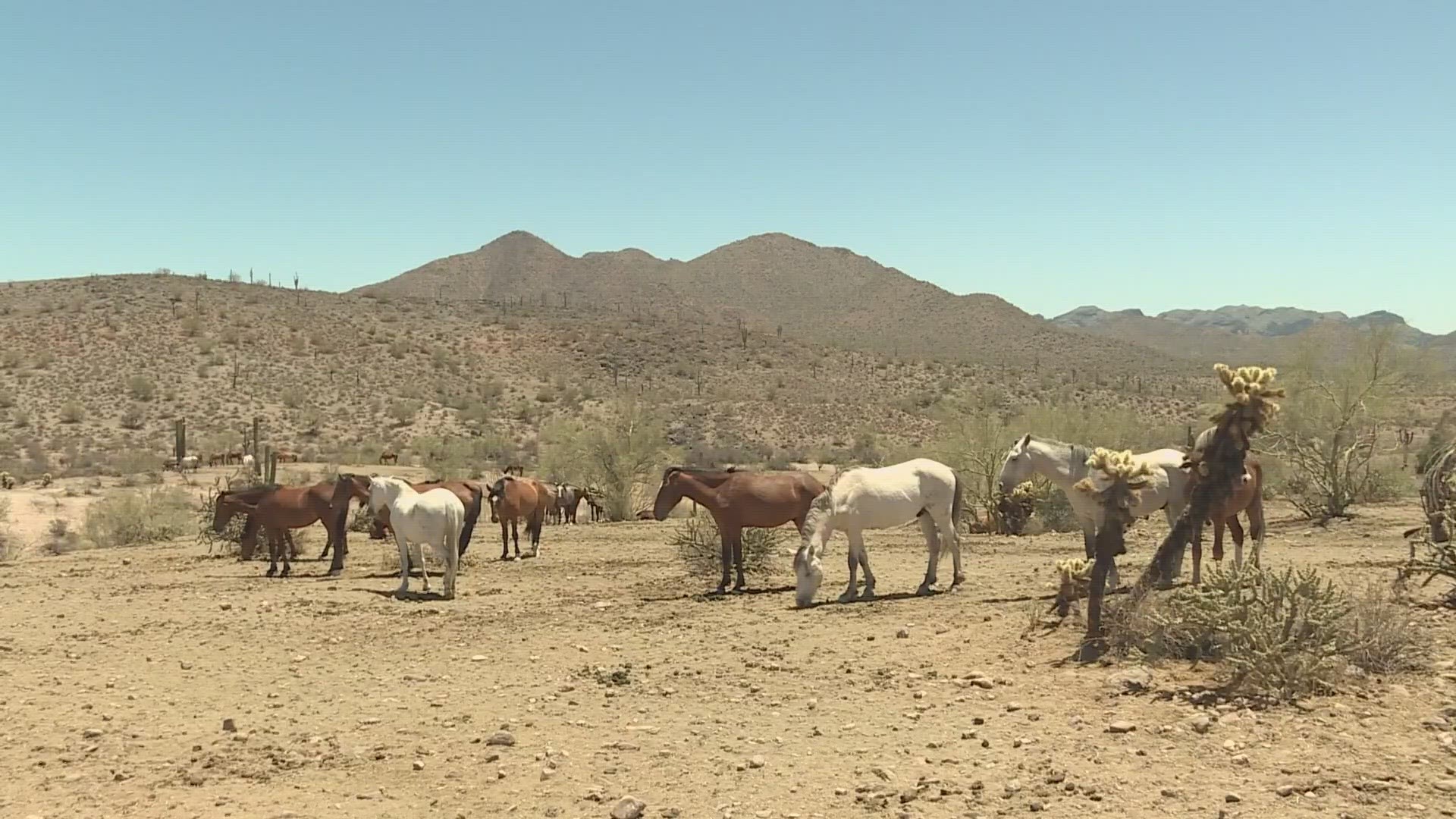ARIZONA, USA — There are always a few surprises for those going down the Salt River. One that is welcomed by many is seeing the river's iconic wild horses.
About 400 horses roam 20,000 acres in Tonto National Forest and have become an Arizona staple.
But, a recent lawsuit filed against the U.S. Forest Service claims these wild horses are doing more harm than good.
It was filed in U.S. District Court in Phoenix by a coalition of conservationists including the Center for Biological Diversity, Arizona Sportsmen for Wildlife Conservation, and Arizona Wildlife Federation.
The lawsuit claims hundreds of horses severely damaged the habitat for endangered species in the area, and that the forest service is not doing enough to prevent it from happening.
"It’s going to take decades for it to recover if it ever does at all,” John Koleszar with the Arizona Sportsmen for Wildlife Conservation said.
The lawsuit claims there are too many horses living in the area to be sustainable. Koleszar believes there is not enough food for the horses to survive on their own, with his research indicating the number of wild horses should go from 400 to 50.
“They are eating everything and anything they possibly can because there is no nutrient-value food out there for them currently,” he said.
Koleszar made it clear he does not want the horses to be killed or driven off the land but said something needs to be done. He also discussed how the horses have to be fed by volunteers to survive the current conditions.
“We want to see wild natural environments this is so far from that,” Koleszar said.
The lawsuit sparked backlash from the group that looks after the horses.
Simone Netherlands is the president of Salt River Wild Horse Management Group. She said her group made up of more than a hundred volunteers was contracted to manage the horses.
She believes many of the allegations listed in the lawsuit are not true.
“The natural situation out here is really not as bad as what they're making it out to be,” Netherlands said.
She believes those traveling down the Salt River leaving behind beer cans and other trash along with the Arizona heat are the reasons why the habitat is deteriorating.
"It's not that the horses are ruining it," Netherlands said.
When asked about population control, Netherlands believes there is plenty of land for horses and other wildlife. Her group is going out every day to implement their fertility program, where licensed volunteers shoot horses with darts that make them unable to reproduce for a year.
“We went from having 100 foals a year down to one or two foals a year," she said.
The goal is to get to below 200 wild horses within ten years, but she hopes the lawsuit doesn't force them to move horses out of the area.
“No one in Arizona wants to see that,” Netherlands said.
Latest Arizona news
Catch up on the latest news and stories on our 12News YouTube playlist here.

